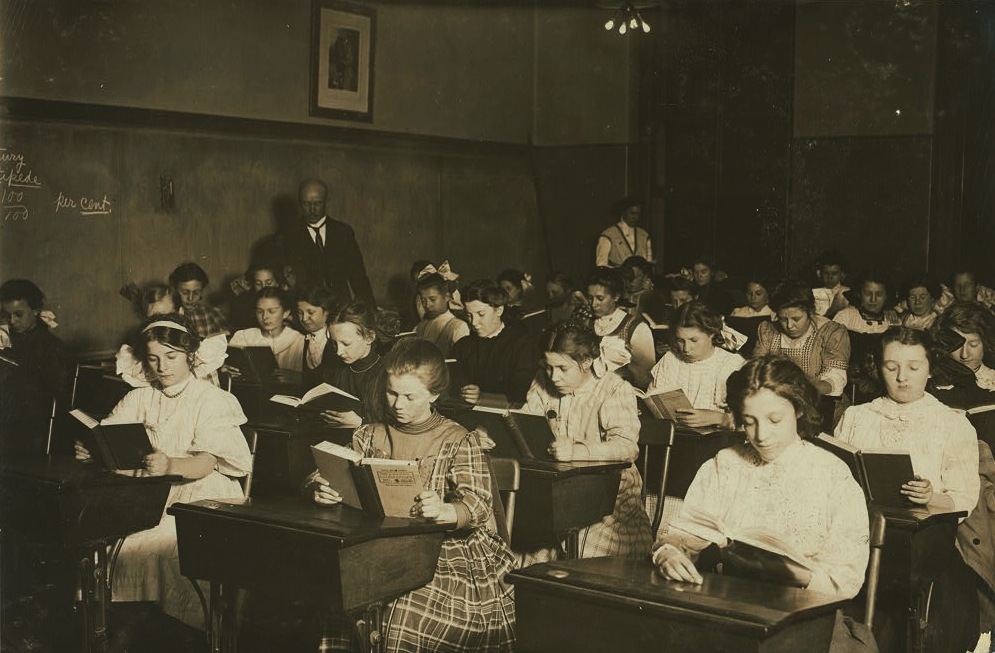Immigrant girls at night school in Boston, 1909. Lewis Hine, courtesy of the Library of Congress.
A longtime resident of the North End, Josie Zizza was the daughter of parents who migrated from the southern province of Avellino. In this interview conducted in the 1980s, she tells of the economic and family pressures that forced her out of school and into the workforce.
“My father came here from Guardia Lombardia, near Avellino, and he came here to work. At 24, he started out as a laborer. He was a very independent person. In those days, there was no union. You had to bribe the Italian foreman—you had to bring things to him. And you could never answer back to a foreman in those days. One day one of the bosses of the ditch diggers told my father to hurry up. My father answered him right back, ‘You’re not telling me to hurry up,’ and he banged the shovel down and left. And with no money in those days he opened a bootblack and shoeshine shop on Hanover Street for five cents a shine. And that’s how we survived….
“My mother had 13 children. In those days my father didn’t believe that girls should go to school, only boys. My father figured I should go to work to help the family since my oldest brother was in college. But I loved school. I was always on the honor roll. I was good with figures… but… my parents decided I had to go to work. In those days they used to say that the girls have to go to work, then they get married and they stay home and have babies. The teachers were very upset that I had to leave school. The principal met with my father and said, ‘What a sin to take her out of school.’ But they [the parents] were determined.
“In those days, we worked at age 14 and you had to go to continuation school a half day a week. But [the law stated] you had to weigh 90 pounds to work. When I applied for my work certificate and got on the scale I only weighed 76 pounds. And the limit was 90 pounds. So my parents kept me home a whole year and they fed me a quart of milk a day, and eggnog, to fatten me up. But at the end of the year, I still weighed 76 pounds! By this time my mother and father were determined that I had to go to work. So one day my father brought me down to a shoe store on Salem Street and he bought me a pair of oxfords a size larger than I usually wore. My father, being a bootblack at the time, had a lot of lead discs the size of half dollars, and he filled up my shoes with them. Then they put a diaper around me because I was very scrawny and very thin. And then they put lead in there. So when it came time to be weighed I tipped the scale at 91 pounds. But the doctor still wouldn’t give his permission. So my mother said, ‘No, she still has to go to work, she has to help.’ After much debating, they gave it to me. But I had to go every week to be weighed because if I lost one pound, they were going to stop me from working. So every week, my mother put in an extra little piece [of lead] just to make sure.”
From: Anthony V. Riccio, Portrait of an Italian-American Neighborhood: The North End of Boston (New York: Center of Migration Studies, 1998), pp. 57-58, 87.


